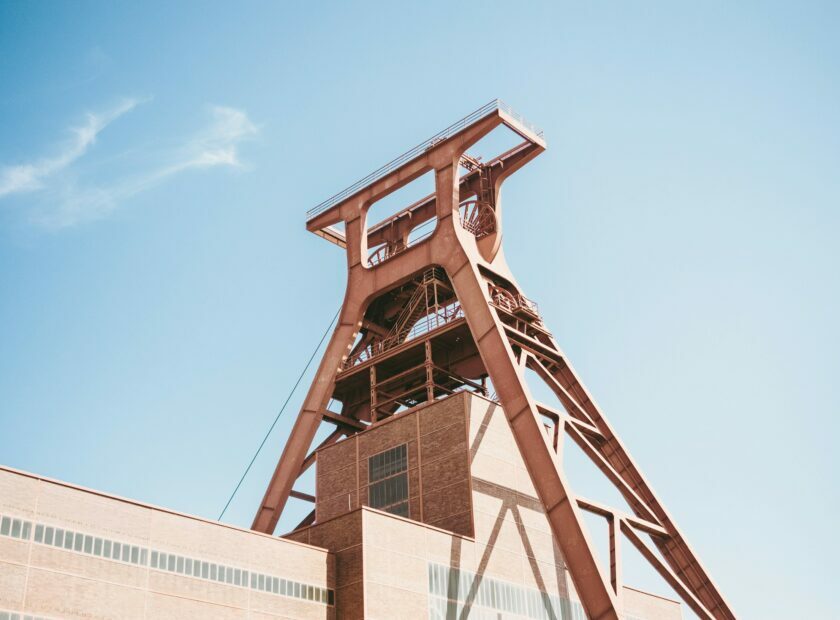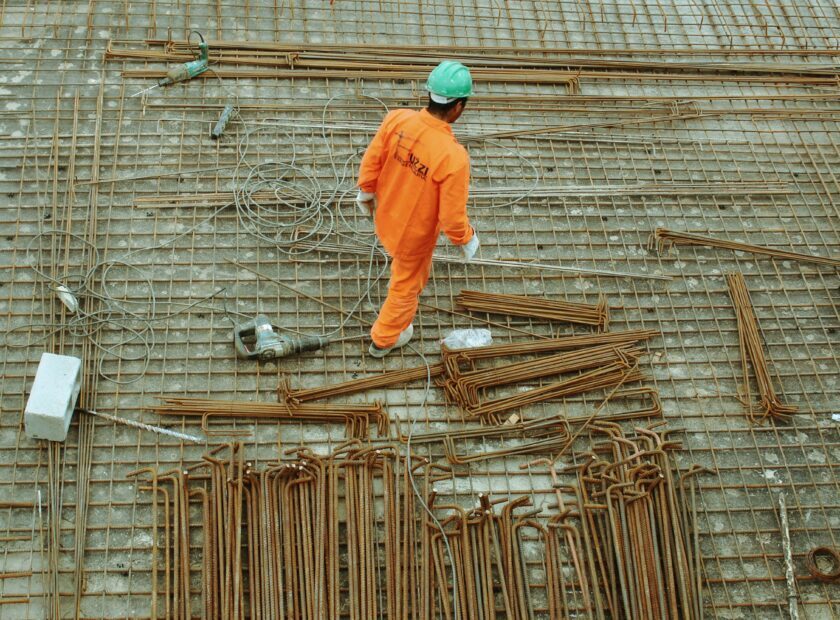Winning Hearts and Minds – Transforming the Industrial Heartlands
Two new policy papers offer valuable insights into (former) industrial regions in the United States. Together with experts, we discussed actionable recommendations for change-makers in German and US industrial heartlands. Here’s what we learned.
What’s next for the green transformation of the economy? Central to this debate are the industrial heartlands of the United States and Germany. This is why a few weeks before the U.S. presidential election of 2024, project fellows of the Transatlantic Dialogue on the Industrial Heartlands travelled through Pennsylvania, Ohio, and Michigan. They gained first-hand insights into the political climate by engaging with local organisations and individuals shaping the future of these regions.
These dialogues underlined once more: the challenge is not purely economic, it is equally a question of communication, emotions and feelings. Transatlantic learning is key at this moment in time, as Germany stands today where the US was four years ago: at the starting line of a massive infrastructure investment package. Lessons from the so-called Bidenomics underline that fears of decline, the loss of pride and questions of identity have to be addressed for financial investments in the heartlands to pay off politically.
To address this nexus of economic and democratic renewal, young U.S. and German change-makers have developed two policy papers. They offer concrete proposals to steer investment in people and place, improve local governance and foster innovation. We explored these ideas in an online discussion with politicians, transition experts, and invited guests.
Putting people in the centre of it
The overarching questions: How can the transition to a green economy and society succeed? What lessons can be drawn from the industrial heartlands? And how do we bring everyone on board in times like these?
While the papers offer clear policy recommendations, the debate around them showed: There is a non-formal dimension that needs to be added. It starts with the way we talk and think about the transformation and extends to deep-rooted cultural narratives that must be acknowledged. As one participant put it: Inject emotions!
Project fellow Whitney Terrill presented the paper People-Centered Industrial Transformation, reflecting insights gathered from five U.S. cities. She noted that the term “just transition” is sometimes viewed as controversial and made clear: it simply means ensuring that everyone – especially working-class communities – has access to the green transformation. One key enabler are trade unions. They help build collective power, connect people, and provide much-needed continuity and stability.
The role of cities in driving the green transformation
Bill Peduto, former mayor of Pittsburgh and member of the project sounding board, shared his insights from the ground in Pennsylvania. He emphasised the crucial role of cities in delivering what will be the greatest industrial revolution in human history. With deep uncertainty about the direction the U.S. will take under Trump, subnational dialogue is more important than ever.
For cities to fully seize the opportunities of the green transformation, they must tailor their strategies to local realities. Collaborating with universities, they can assess which capacities need strengthening and identify where industrial conversion is most viable. The transition is likely to be most successful in regions with a strong industrial past – the industrial heartlands.
On communication, Peduto highlighted a major challenge: green technology is often met with fear. To overcome this, we need to frame the green transition as an opportunity—one that safeguards towns, secures jobs, and ensures a better future for the next generations. Yes, it reduces carbon emissions, but more importantly, it makes communities more resilient and part of a global movement. His advice to change-makers? Engage directly with those who have turned to the far right. Show them how this transition benefits them and their families. Win over hearts and minds.
Unlocking democracy by breaking through structural barriers
At the heart of the industrial heartlands’ transformation lies the power of local leadership. Project fellow Ben Harrington presented the second paper, Unlocking Democracy, which outlines targeted policy recommendations to dismantle structural barriers, enabling communities to take charge of their own future.
He stressed that for regional collaboration to thrive and for economic and social renewal to take root, self-governing communities must be equipped with both legal authority and stable funding. At the same time, to dispel perceptions of government as “the scary G,” the social contract must be reimagined. Investing in place-based infrastructure should send a clear message: economic development and quality of life improvements can go hand in hand.
Calibrated change that improves people’s lives
Thomas Kralinski shared insights from Germany’s industrial heartlands, drawing from his experience as State Secretary at the Saxon State Ministry of Economics, Labour, and Transport. In Eastern Germany, communities have already undergone a profound transformation – the end of the German Democratic Republic. While this experience has brought valuable knowledge, it has also fostered deep insecurity, as people can only endure so many radical changes.
Reflecting on recent election results, it may seem paradoxical that large segments of voters in this region are turning to the far right, despite significant government investment in retraining and social programmes. Kralinski emphasised that to truly win over hearts and minds, financial support alone is not enough. The key question must be: How can we genuinely improve people’s lives?
While material factors matter, culture must be taken far more seriously in shaping policies. Change, when it comes, must be well-calibrated. As project fellow Vera Gohla put it: You can’t just make a plumber code. Skilled trades remain essential, and many people take pride in their craftsmanship. The green and digital transitions require not only new tech talent but also pathways that respect existing skills and mindsets, ensuring that workers find opportunities in industries that align with their experience and aspirations.
Addressing emotional loss in times of change
Kenneth Thompson, a psychiatrist from Pittsburgh who met with the project fellows during their tour, shared valuable insights on how to win over people in times of transformation. He highlighted the tendency to speak of “hearts” without truly addressing the emotional needs that lie beneath. While the golden age of industrial regions may be over, you cannot just tell people: we’re gonna show you the new way, the better way.
People need space to mourn. The predominant sense of loss has been neglected by the left. And the easiest way not to feel loss is to feel rage. This is what we are seeing in both Germany and the U.S. However, the good news, according to Thompson, is that collective emotional loss can be addressed using cultural tools – and there are already successful examples of how this can be done.
It’s politics, not just policy
When you travel along the A1 motorway in the North East of England, you will encounter a large contemporary sculpture by artist Antony Gormley: The Angel of the North. Completed in 1998, this figure stands 20 metres tall with a wingspan of 54 metres. It is made from weathering steel and was commissioned by the local council to mark the transition of the area from an industrial past, shaped by coal mining, to a modern future.
The Angel of the North could easily be seen as a mere landmark. But it serves a deeper purpose, Thompson remarked – memorialising the loss of an entire industry. The message is as simple as it is profound: This is who we were. And now, we will become something different.
Back in the online event, there is a sense that the presented policy recommendations are valuable, as they were born from genuine interest in the region and its people the discussions underline that it is not just about policies, but about the politics that constitute the framework in which they are implemented.. Yet, despite the drive to move forward, we must remember the importance of looking back. We must create space to recognise and mourn the losses, honouring the past before shaping a brighter future together.
Communicating this dual message – respecting the past while striving for better times ahead – is crucial. By doing so, we can improve lives, strengthen regions, and instill pride in families. In the end, the reduced carbon footprint will almost seem like a welcome by-product of the transformation – and we will gladly take that.



